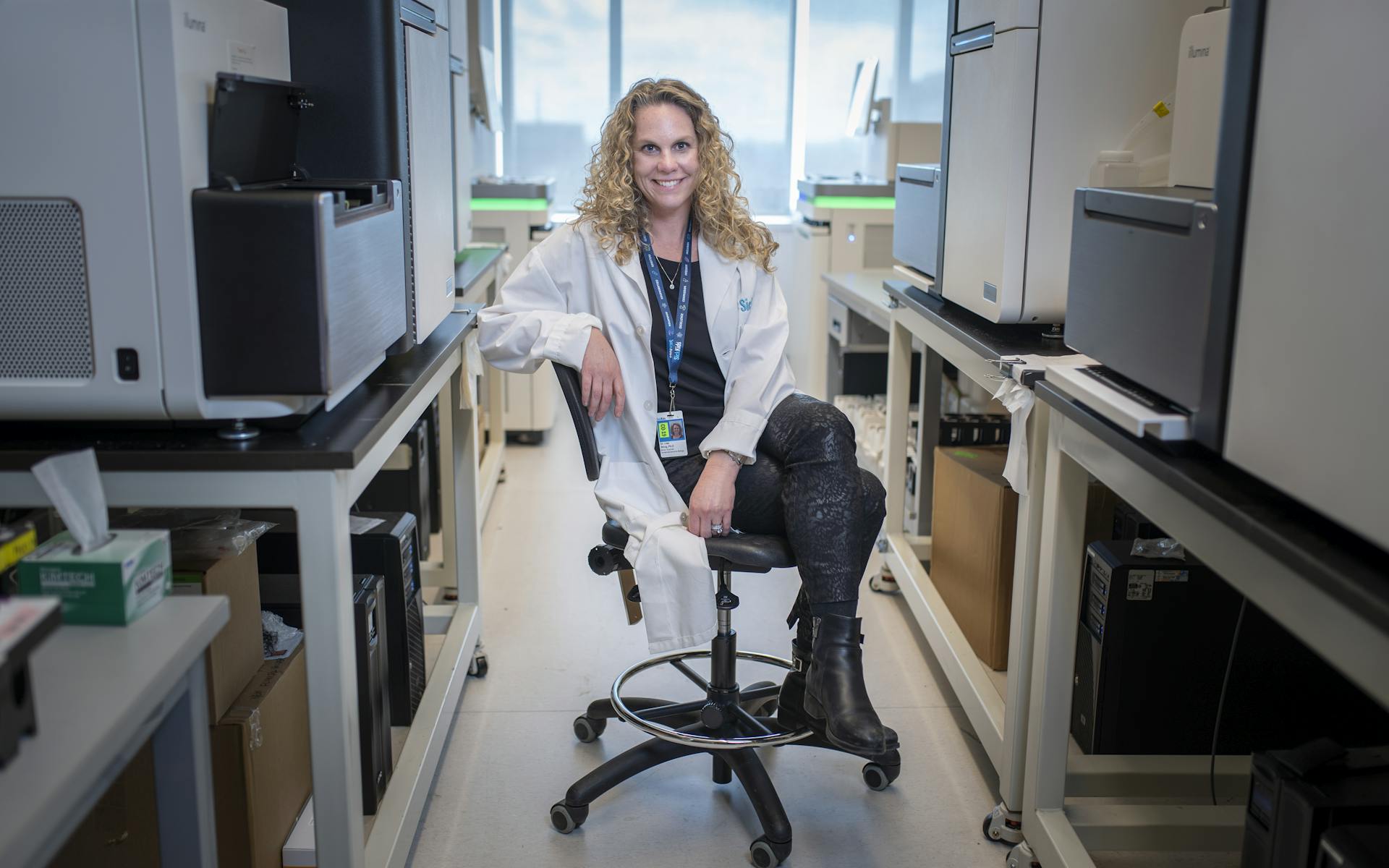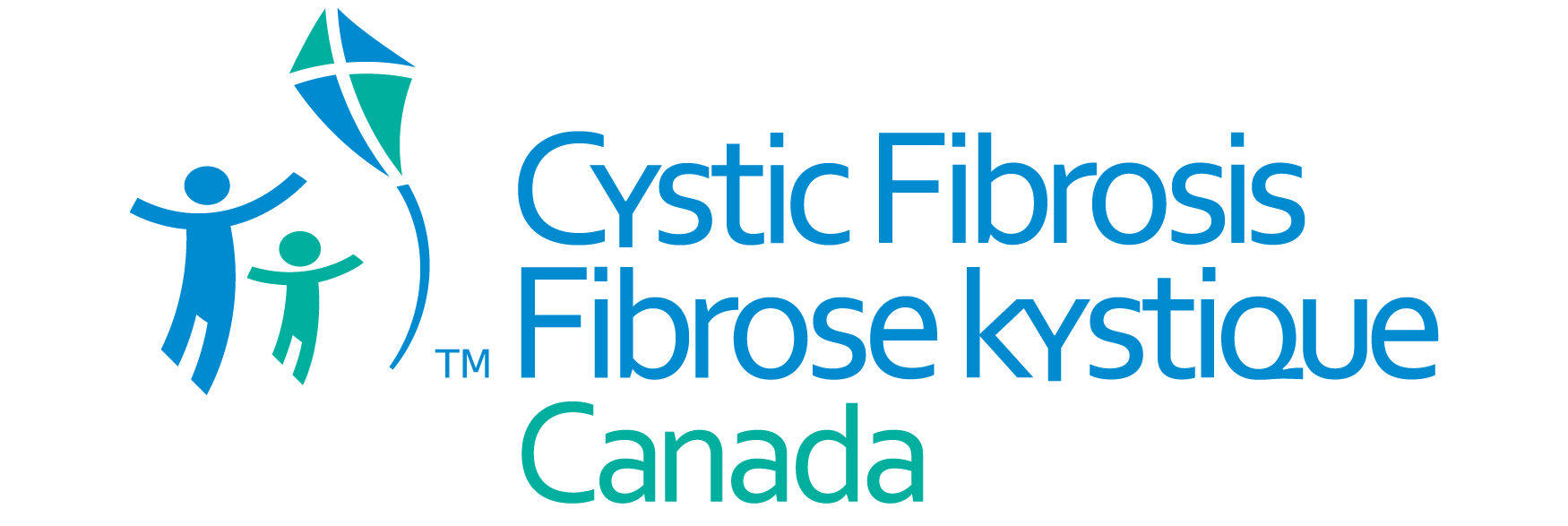Dr. Lisa Strug - Unravelling genetic contributors to CF-related conditions
November 1, 2024Share this:

Dr. Lisa Strug - Unravelling genetic contributors to CF-related conditions
Dr. Lisa Strug is a professor at the University of Toronto and Senior Scientist at The Hospital for Sick Children, focusing on genetics and genome biology. Dr. Strug was awarded the Senior Scientist award from Cystic Fibrosis Canada, for her recently funded research project, The Epidemiology of Cystic Fibrosis. Dr. Strug and her team are investigating various genes that may play a role in the development of cystic fibrosis (CF)-related conditions and may hold potential to produce an alternative target for therapies. Read more about Dr. Strug’s research and contribution to cystic fibrosis below!
Can you give a brief overview of your research?
CF Canada has been a vital supporter of the Canadian CF gene modifier study since around 2009. This study collaborates with CF clinics across 10 provinces, enrolling about 75% of Canadians with CF. It aims to understand why individuals with the same CFTR mutations have very different diseases across their CF-affected organs. The assumption is that there are other genes beyond CFTR that contribute to this.
Our focus has been on identifying these additional genetic contributors that help explain this variation. We delve into the genes beyond CFTR that influence CF-related conditions like pancreatic disease, lung disease, and CF related diabetes (CFRD). To do this, we have been mapping out those specific genes and translating their significance into clinical applications.
How are you able to determine what CF related issues an individual may develop?
One application of this is using your specific CFTR mutations, and the gene variants we’ve identified to build an equation. These equations can predict the likelihood of developing CF-related diabetes, and future equations could predict the potential severity of a lung-disease and who may respond best to CFTR-directed therapies. The genes in these predictive equations may even reveal potential targets for future therapies aimed.
Alternative targets for therapies would be intended for individuals who have mutations that result in no CFTR protein being made in the cell. This is a group of CF patients who won’t benefit from modulators like Trikafta. But they might also be helpful for people who may not have a huge response to Trikafta, to enhance their treatment outcomes.
CF Canada has a number of research priorities that were determined by CF community. You’ve proposed that your research will cure CF with gene or stem cell therapies. How do you plan on addressing this?
Through the Canadian CF Gene Modifier study, we have already identified one gene that contributes to the disease across multiple CF-affected organs and modulator responses. We then started a drug program where we screened for small molecules targeting it. Now, we are working to advance the drug program with the hope that we will eventually have a new drug treatment to help individuals with CF.
As we advance our work in the CF Gene Modifier study, we hope to identify more modifier genes and potentially new targets to modulate, such as to reduce the chance that someone would have a chronic infection.
What inspired you to pursue research in cystic fibrosis and more specifically, what inspired you to pursue this specific project?
When I was growing up in Halifax, I had a very close friend, Robbie Thompson who died of CF in his 20s. The familiarity that I gained through my relationship with Rob sparked an interest applying the skills I developed in graduate school to better understand and improve the lives of individuals living with this disease.
So when the opportunity arose to work on CF research under Mary Cory, focusing on genetic and statistical aspects, I jumped at the chance. My training led me to become skilled in complex trait genetics and statistical genetics, particularly in the context of genome-wide association studies.
I then joined the SickKids CF group, where I was fortunate to contribute to the gene modifier study. Over time, new technologies emerged, and I developed tools for higher resolution data, allowing a deeper insight into CF genetics to reveal new and unexpected findings. This journey has highlighted the complex nature of CF genetics and its potential to impact on disease understanding.
Congratulations on receiving the senior scientist award...
It's very meaningful to me. An award like this suggests that what we have been putting our energy towards all these years is recognized as important and can help people with CF. It’s a big honor. It energizes my motivation to continue but also helps to increase our opportunities to grow our research program.
I also want to emphasize that I have had the great opportunity to work with amazing collaborators, research staff and group of graduate students over the years who have contributed with many of their own ideas and pushed our research forward. So, I want to highlight that although I received this award, it’s a team effort of really bright students and staff at the University of Toronto and SickKids that have helped us get to this point.
"We appreciate how generous the CF community is in participating in these research studies...So, I just want to give a huge thank you because we wouldn't be able to do it without the participation of CF patients and their families."
- Dr Lisa Strug
What do you see changing over the next 5 to 10 years for those living with cystic fibrosis?
There are two aspects to consider when answering this question. First, for those with access to modulators, their disease dynamics will shift. Lung function distribution may change, with potential impacts on various aspects like bone density and comorbidities such as CF-related diabetes. The psychosocial and life planning aspects will also undergo adjustments, introducing new realities to the community.
On the other hand, there’s a smaller group without treatment access, representing an even rarer subset who face the challenge of witnessing others within their community benefiting from treatments while they remain untreated. This underscores the need for research to explore alternative approaches beyond CFTR modulators, such as gene therapies or the alternative targets that we are researching. This shift represents a change in the disease paradigm, with a focus on those benefiting from evolving treatments and those awaiting alternative strategies.
Is there anything you want to CF community to take away from your research?
I hope the community knows that we are still at it and still so committed. And the work that we have always done, like identifying potential new drug targets, is still very important to improve the lives of people living with CF. And we appreciate how generous the CF community is in participating in these research studies. We are constantly asking for information, and blood samples, or scrapes of noses and there has always been this interest in what we are doing as researchers. So, I just want to give a huge thank you because we wouldn't be able to do it without the participation of CF patients and their families.
